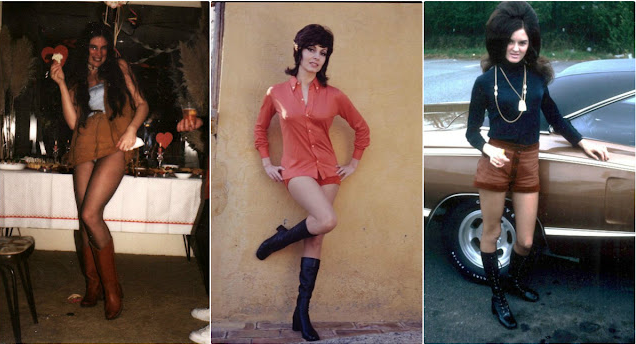
A picture of a crowd in New York and there is not one unhatted head, 1930
A picture of a crowd in New York and there is not one unhatted head. Margaret Bourke-White shot this bird’s-eye-view of Manhattan’s Garment District —specifically 36th St. between 8th and 9th Aves.—for a FORTUNE magazine story titled “Cloak and Suit”.
What happened to the hats?
Until the 1960s, hats were very popular with both men and women, so much so that, for a man, going out in public without a hat was seen as a bit like going out without shoes.
Even outdoor laborers wore caps at work. But in the late 1950s and early 1960s, hats quite quickly became entirely optional, especially among young men, and then positively old-fashioned. So what happened?
There are a couple of factors why hats disappeared. Prior to the 20th century, working folks spent a lot of time outside, if for no other reason than that they had to walk near everywhere. The hat protects the head from rain, sun, and wind. Together with a good overcoat, they provide reasonable protection from the elements even for hours at a time.
This is why a hat and overcoat became somewhat of a uniform, even among women. It sort of morphed into a traditional form of dress and remained popular even as it became less relevant with the rise of automobiles.
The explosion of the automobile as the primary form of transit made hats bulky and a hassle. People walked a lot more in those days, whereas people today drive and commute more, and hats are generally a bit more impractical and unnecessary inside a vehicle. Also in the 1950s automobiles shifted to lower rooflines, so there was less room for hats.
Bathing was considered a luxury back then and shampoo was not as common as it is today. People washed more seldom and were also more dependent on different products to keep hair in place. So most people had very greasy hair, the hats were used to cover up.
Sunglasses were another factor. In 1929, Sam Foster, under the trade name Foster Grant, began selling mass-produced sunglasses in Atlantic City. They were known before then, but somewhat expensive and had a somewhat negative association with spectacles for poor eyesight and dark glasses for the blind.
Wartime photos of dashing aviators wearing sunglasses without hats (hats being rather impractical in an aircraft) greatly influenced the American public. Still, it took a number of years for sunglasses to make hats seem old-fashioned. And a Foster Grant’s advertising campaign in the early 1960s sealed the fate of the stodgy formal hat.
Another significant factor in the decline of hats (at least for men) was hair. Elvis, Marlon Brando, James Dean…before these guys, men had no hairstyles to speak of.
They used brill cream and such, mostly to keep their hair kempt under their hats. But James Dean? He didn’t need a hat, because he looked good without one.
The greased hair, then the unkempt, then the hippie, and on and on. Nobody was going to hide their hair under a hat anymore because it became so closely tied with young men’s self-concept.
Interesting fact: The earliest record of hat-wearing comes from a cave at Lussac-les-Châteaux in central France. The rock drawings there are 15,000 years old and depict men wearing things that look like hats.
Check out these vintage portraits of men with hats posing in a photo booth:
Handsome Men With Hats
Handsome Men With Hats
Handsome Men With Hats
Handsome Men With Hats
Handsome Men With Hats
Handsome Men With Hats
Handsome Men With Hats
Handsome Men With Hats
Handsome Men With Hats
Handsome Men With Hats
Handsome Men With Hats
Handsome Men With Hats
Handsome Men With Hats
Handsome Men With Hats
Handsome Men With Hats
Handsome Men With Hats
Handsome Men With Hats
Handsome Men With Hats
(Photo credit: Margaret Bourke-White).
























